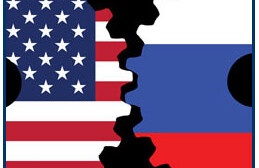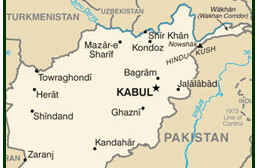Framing ethical perspectives
Multilateralism refers to a group of nations working together for a common goal. It is at the heart of international relations as nation-states form alliances with like-minded countries to take on global issues, such as climate, emerging technology, inequality, and collective security. Carnegie Council sees multilateralism as essential to generating solutions to global problems and a critical component of an ethical present and future.
Featured Multilateralism Resources
Inclusivity, AI & climate governance, and more
FEB 27, 2024 • Video
A Carnegie Council Conversation with the UK Home Secretary
MAR 28, 2024 • Video
Unlocking Cooperation: The Global South and Global North
In the inaugural panel of the "Unlocking Cooperation" series, Ramu Damodaran leads a discussion on forging a path forward for Global South/North collaboration.
OCT 18, 2023 • Video
Unlocking Cooperation: A Global Ethics Day Special Event
In this keynote event for Global Ethics Day 2023, Carnegie Council President Joel Rosenthal led a conversation on the psychology behind cooperation; ways that states, institutions, ...
Subscribe to the Carnegie Ethics Newsletter for more on ethics and international affairs
Related Initiatives
Model International Mobility Convention
The primary goal of the Model International Mobility Convention (MIMC) is to formulate new rules for migration and asylum that can benefit both migrants and refugees as well as their states of origin, transit, and destination.
Carnegie Ethics Accelerator
The Carnegie Ethics Accelerator is a new kind of incubator designed to empower ethics in the face of swiftly evolving challenges in technology and public policies.
Explore Our Multilateralism Resources

AUG 24, 2011 • Article
Arms Control and Proliferation Challenges to the Reset Policy
The United States, Russia, and outside observers all agree on one thing: the fragility of the reset policy. This paper clarifies the reasons for this ...
JUN 10, 2011 • Podcast
Global Ethics Corner: Is There A 'Third Way' to Engage China?
The Chinese economy and defense budget have grown at an enormous rate over the past five years. Do you think that this will lead to ...

MAY 27, 2011 • Podcast
Rise of the Rest IV: Critical Regions in Crisis
Optimistic and bleak by turns, a panel of experts analyzes the dilemmas facing the rising and existing powers--from protests across the Middle East, to the ...
MAY 13, 2011 • Podcast
Ethics Matter: Political Scientist and Economist Francis Fukuyama
How does Francis Fukuyama view state formation, normative issues, and human behavior? Does he believe (as Andrew Carnegie did) that history moves in an upward ...

MAY 12, 2011 • Podcast
The Origins of Political Order: From Prehuman Times to the French Revolution
How did human beings succeed in creating the ideal of strong, accountable governments that adhere to the rule of law? Francis Fukuyama provides a sweeping ...

APR 20, 2011 • Article
A New Afghanistan in a New International Construct
Picco argues that, first, we may have to set aside the notion that Afghanistan must remain a unified, centrally governed state; and second, that a ...

APR 12, 2011 • Podcast
How to Run the World: Charting a Course to the Next Renaissance
We're living in a multi-polar, multi-civilizational world, says Parag Khanna, and the old rules no longer apply. Increasingly, states, international organizations, NGOs, and corporations must ...

APR 8, 2011 • Podcast
The World Ahead: Conflict or Cooperation?
After the Cold War, Fukuyama, Huntington, and Mearsheimer each presented a bold vision of what the driving forces of world politics would be. Yet all ...

MAR 25, 2011 • Transcript
Rahim Kanani Interviews Joel Rosenthal
Joel Rosenthal gives his assessment of President Obama's foreign policy, the Middle East and North Africa protests, the WikiLeaks revelations, U.S. leadership in the ...

MAR 25, 2011 • Podcast
Rahim Kanani Interviews Joel Rosenthal
Joel Rosenthal gives his assessment of President Obama's foreign policy, the Middle East and North Africa protests, the WikiLeaks revelations, U.S. leadership in the ...




